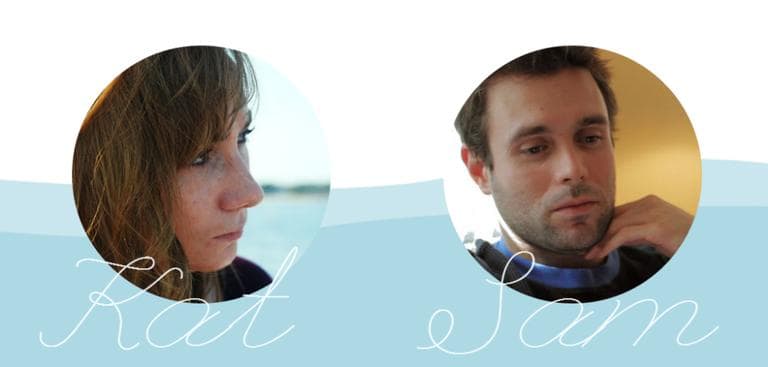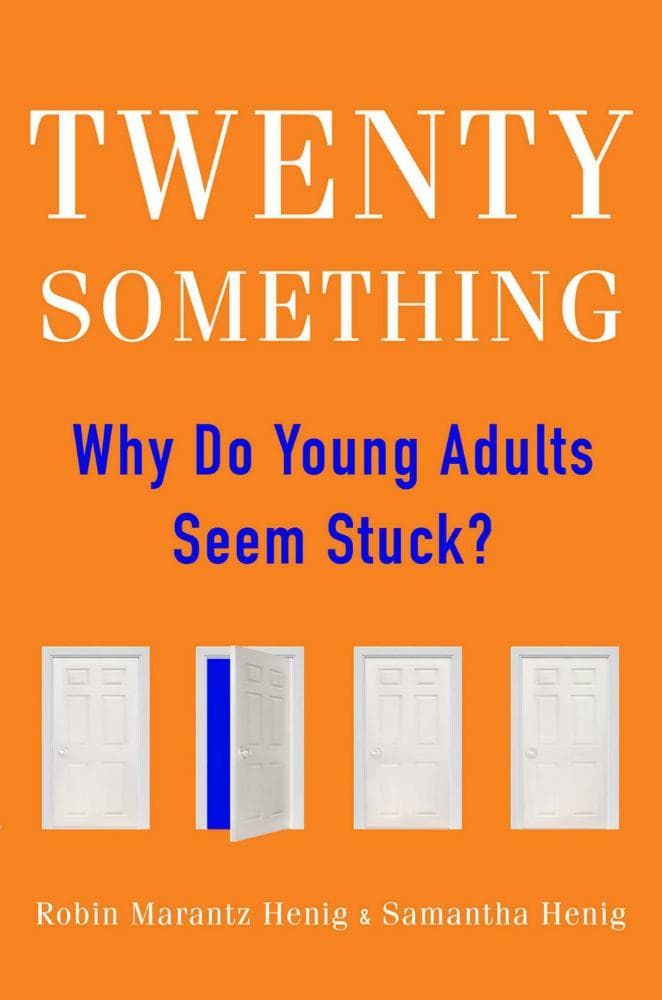Advertisement
Generation Stuck: How Are 20-Somethings Today Any Different?
Resume
We continue WBUR’s special series, Generation Stuck, that focuses on the challenges that 20-somethings are facing in this economy. Are young people genuinely struggling or just struggling with their own sense of entitlement? And how different are they from previous generations?
Robin Marantz Henig, a baby boomer, co-wrote "Twentysomething: Why Do Young Adults Seem Stuck?" with her millennial daughter, Samantha Henig. In it, they conclude:
[S]ome things about today's world make being twentysomething different from how it's ever been: the staggering number of options available, the crush of student debt, the long lead time before deciding about babies. But on other measures — career options, marriage, health, friendships, and relations to parents — we think that Millennials are more like preceding generations than they are different.
Henig joins us to explain what makes the plight of 20-somethings today unique and what generational patterns continue to endure and inspire the same old criticism.
Guests:
- Robin Marantz Henig, co-author of "Twentysomething: Why Do Young Adults Seem Stuck?" (Read Chapter One)
- Nate Goldman, WBUR's social media producer and creator of Generation Stuck
More:
Excerpt From "Twentysomething"
This article has been adapted by arrangement with Hudson Street Press, a member of Penguin Group (USA) Inc., from "Twentysomething" by Robin Marantz Henig and Samantha Henig. Copyright 2012 by Robin Marantz Henig and Samantha Henig.
Ally McBeal vs. Liz Lemon
Robin:

Career deadlines, marriage deadlines, parenthood deadlines — all the internal deadlines for adult milestones have gotten later since the Baby Boomers’ day. Traditionally, five milestones have been used to define adulthood — completing school, leaving home, becoming financially independent, marrying, and having a first child. Millennials pass through all the Big Five, on average, about five years later than Baby Boomers did. It’s become a feedback loop: as the milestones are commonly achieved deeper into post-adolescence, cultural expectations shift even further back.
Today’s young people don’t expect to marry until their late twenties, don’t expect to start a family until their thirties, don’t expect to be on an actual career track until much later than their parents were. So they make decisions about their futures that reflect this wider time frame. Many would not be ready to take on the trappings of adulthood any earlier even if the opportunity arose; they haven’t braced themselves for it.
Samantha:
It’s surprising how cultural shifts in these age deadlines can sneak up on you. I spent a weekend recently bingeing on old episodes of Ally McBeal, which I remember watching when it started in 1997. Parts of Ally’s life had seemed exciting to me as a teenager. I was especially taken with the notion of living with a best friend, in an apartment, as a grown-up. Ally and Renee sat on the couch in their pajamas, drinking red wine and eating ice cream. It looked great. But I could also see that Ally was boy-crazy, baby-fi xated, and a little pathetic. Those chats with her roomie always came back to the same lament: Where were all the decent, single guys, and would Ally ever nab one in time to avoid old maidhood? Her biological clock was ticking, after all. Those visions of dancing babies weren’t just an exercise in late-90s CGI.
So imagine my horror, mid-marathon, when I realized that Ally, in season one, was twenty-seven — the same age as I am. It seems ridiculous to me now that a character so established in her career, with such fi nely tailored (though ludicrously short) skirt suits, and yet so damn desperate, could be my age. When such a character exists on TV today, she’s not twenty-seven. Just look at Liz Lemon from 30 Rock: another career woman freaking out about whether she’s nearing the end of her window to get married and have kids. When the series began in 2006, Liz was thirty-six, almost a decade older than Ally.
Robin:
Millennials are certainly taking their time, as measured by the Big Five milestones. Of course, the whole idea of milestones is something of an anachronism; it implies a lockstep march toward adulthood that’s rare these days. Kids don’t shuffle along in unison. They slouch toward adulthood at an uneven, highly individual pace. Some never achieve all five milestones. (Maybe they’re single or childless by choice, or maybe they want to marry but can’t because their home state prohibits gay marriage.) Others reach the milestones completely out of order, advancing professionally before committing to a monogamous relationship, having children young and marrying later, leaving school to go to work, or choosing school only after becoming financially secure. But those traditional milestones do offer some insight into how people even now typically make the transition to adulthood. And the fact that Millennials are taking so long says a lot. In 1960, 77 percent of women and 65 percent of men had passed all five by the time they’d reached thirty. Among thirty- year-olds in 2000, fewer than half of the women and one- third of the men had done so.
Why the delay? There are several reasons, according to Jeffrey Arnett, the Clark University psychologist who says young people today are going through a new life stage he calls “emerging adulthood.” People need more education to survive in an information- based economy, which means staying on the student (and less grown-up) track longer. Even after all that schooling, there are fewer entry- level jobs, which means a longer wait for financial security. There is at once a sense that the years stretch out forever now that average life spans extend into the eighties, and a sense that nothing lasts given how transient some “permanent” commitments can turn out to be. And on the home front, young people may feel in less of a rush to marry and have babies because of the general acceptance of premarital sex, cohabitation, and birth control, combined with more career options for women and easier access to assisted reproductive technology for those who wait.
This is where emerging adulthood comes in. Its hallmarks, according to Arnett, are identity exploration, instability, self- focus, feeling in-between, and feeling a sense of possibilities. Much of this happens during adolescence, too, but it takes on new depth and urgency in the twenties. To the psychologists and sociologists now making a case for emerging adulthood, this new stage of life is something to celebrate — a grace period that grants young people the time they need to stretch, explore, get to know themselves, and get to know what they’re doing.
From age eighteen until about twenty- nine, Arnett says, young men and women are more focused on themselves than at any other time of life. They’re less certain about the future in general, but also more optimistic, no matter what their economic background. This is where that “sense of possibilities” comes in, he says; emerging adults have not yet tempered their idealistic vision of what awaits. “The dreary, dead- end jobs, the bitter divorces, the disappointing and disrespectful children . . . none of them imagine that this is what the future holds for them,” he wrote in his 2004 book, Emerging Adulthood. Ask young people if they agree with the statement “I am very sure that someday I will get to where I want to be in life,” and 96 percent will say yes.
Along with the exciting, even exhilarating elements of being this age, there is also a downside: dread, frustration, uncertainty, a sense of not quite understanding the rules of the game. More than positive or negative feelings, what Arnett hears most often is ambivalence— beginning with his finding that 60 percent of the young people he has studied told him they felt like both grown- ups and not- quite- grown-ups.
This segment aired on December 11, 2012.